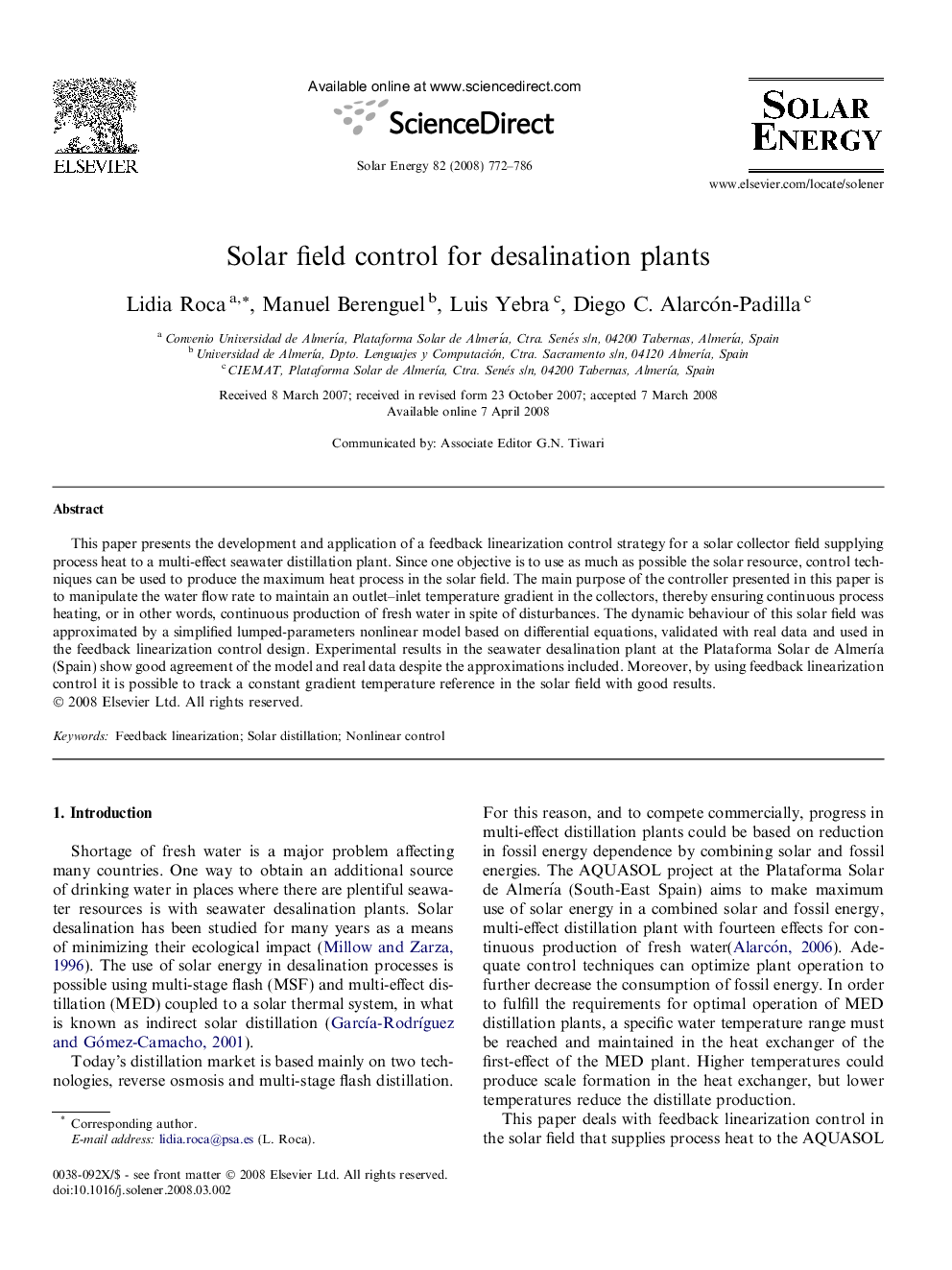| Article ID | Journal | Published Year | Pages | File Type |
|---|---|---|---|---|
| 1551916 | Solar Energy | 2008 | 15 Pages |
This paper presents the development and application of a feedback linearization control strategy for a solar collector field supplying process heat to a multi-effect seawater distillation plant. Since one objective is to use as much as possible the solar resource, control techniques can be used to produce the maximum heat process in the solar field. The main purpose of the controller presented in this paper is to manipulate the water flow rate to maintain an outlet–inlet temperature gradient in the collectors, thereby ensuring continuous process heating, or in other words, continuous production of fresh water in spite of disturbances. The dynamic behaviour of this solar field was approximated by a simplified lumped-parameters nonlinear model based on differential equations, validated with real data and used in the feedback linearization control design. Experimental results in the seawater desalination plant at the Plataforma Solar de Almería (Spain) show good agreement of the model and real data despite the approximations included. Moreover, by using feedback linearization control it is possible to track a constant gradient temperature reference in the solar field with good results.
